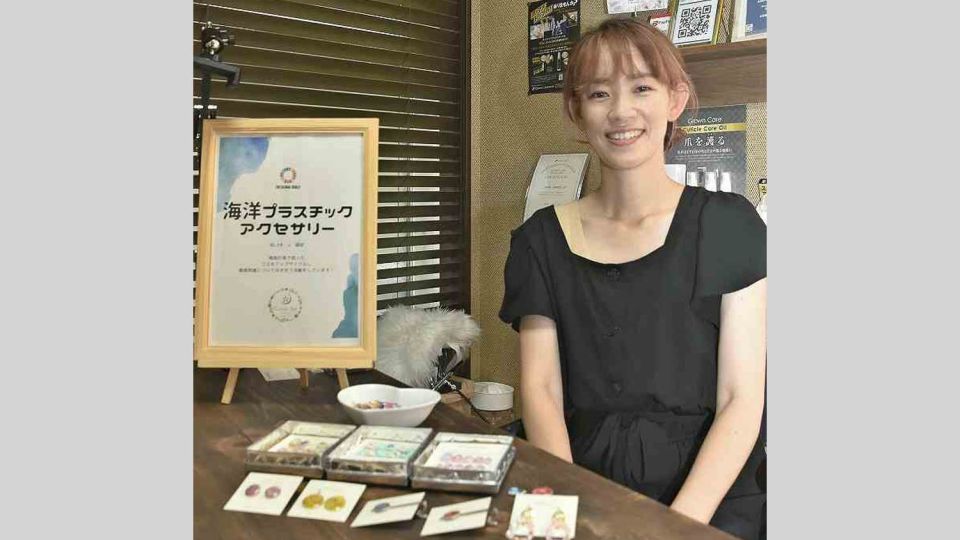October 25, 2022
TOKYO — A woman suffering from an intractable disease has started making and selling custom-made press-on fingernail nails using plastic waste she collects from a local beach.
Nail technician Naomi Arimoto said she “wants people to know that anyone can realize their dream and contribute to society, even if they have disabilities.”
Arimoto, 40, was diagnosed with HTLV-1-associated myelopathy (HAM) in 2014, and now uses a wheelchair.
The virus causes inflammation in the spinal cord, damaging nerves and resulting in progressive paralysis of the legs, among other symptoms. It is estimated that there are about 3,000 people in Japan with the disease, which the government has designated as intractable.
Initially, Arimoto quit her job at a welfare facility and stopped going out because of the disease. She subsequently found work with a local company after being encouraged by her husband and three children to “become a cool wheelchair-using mom.” However, she quit that job after a year because she did not feel comfortable at the facility and felt at a loss due to becoming disabled.
During those difficult times, Arimoto found solace in her hobby — nail art. She became determined to improve her nail-related skills and open her own salon. Arimoto realized her dream in 2018 with the opening of her salon, Plumeria Nail, in Chigasaki, Kanagawa Prefecture.
After thinking that “there must be people with disabilities who want to go to a nail salon,” she made her salon “barrier-free,” with no steps.
Beach epiphany
Plastic waste in the ocean and elsewhere is harmful to the ecosystem. It is estimated that Japan generates some 20,000 to 60,000 tons of plastic waste annually. While participating in a local beach cleanup for the first time in March last year — riding a wheelchair specially designed to run on sandy beaches — Arimoto noticed myriad pieces of plastic waste, including fragments of containers.
That was the moment when she thought of using the plastic to create press-on nails, thereby turning the waste she collected into something else. Arimoto decorates the plastic debris by drawing patterns to fashion her “world-first” type of press-on nails.
Arimoto began selling her made-to-order nails in May and hopes her initiative will provide “an opportunity for more people to think about work for people with disabilities and environmental conservation.”
Prices for sets of Arimoto’s press-on nails start at ¥8,800 (tax included).

